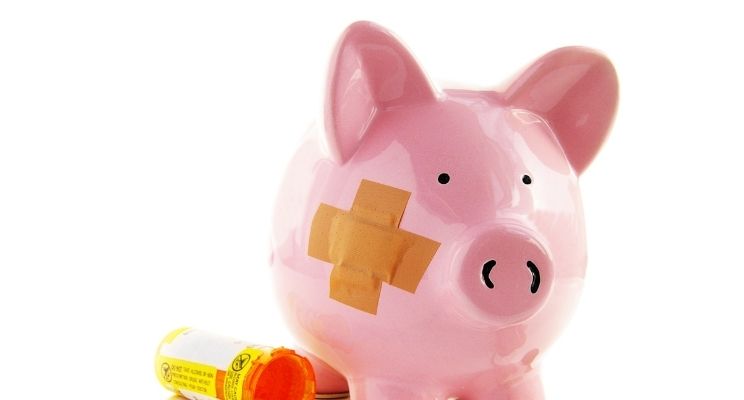Medical bills can be like a nightmare. Many of you will be tossing and turning and spending nights awake. Expensive medical treatments are primarily responsible for substantial medical bills.
More than 30% of households struggle to pay off medical bills, and as a result, they think they should take out a loan to pay them off once and for all.
It may sound like a good financial decision, but do not make a reckless move without analysing its pros and cons.
Why should medical debt raise an alarm bell?
Medical debts do not work like other debts like credit card bills, mortgages and auto loans. They do not show up on your credit report, and hence there is no risk of losing your credit.
The problem begins when the medical provider sells your debt to a third party for collection.
Once your medical debt is sent to the collection agency, you have a grace period of 180 days to settle your account, and it will not show up on your credit file.
This buffer period allows you to contact your doctors to create a plan for debt settlement.
Should you take out a loan to pay off medical debt?
When you have accumulated too much medical debt taking out personal loans in Ireland can seem to be a good idea to you, but taking out a new loan to settle the current one may not be a good idea at all.
If you add up the interest and processing fees, you will find that it will cost you in the long run. As you know that medical debt will impose a problem for you when sent to the collection agency, your priority should be keeping it from going to it.
The medical provider will not send your debt to the agency without keeping you in the loop. First, they will send you notifications and reminders for the payment.
You do not need to bury your head in the sand because the debt will not go away. You will have to take specific steps to clear outstanding dues. Here is what you can do:
Payment plan
Stop being nervous about your medical debt. Instead, it would help if you came up with a payment plan. Talk to your medical provider and frankly tell them you cannot pay it off outright. They will not mind working out a payment plan with you.
This will help you pay off your debt in fixed monthly instalments over an extended timeframe. It would be best to talk to your medical provider about the payment plan when the bill is generated. Do not forget to ask for the interest payment and additional charges.
Use a medical credit card.
One of the significant mistakes that people make while paying off debt is they use credit cards. You are digging your own grave if you do it because credit cards carry higher interest rates than unsecured personal loans in Ireland.
Although you have an interest-free period, it cannot be easy to pay off the bill in a lump sum. As you miss out on the due date, you will lose your credit score immediately, and interest penalties will accrue.
This is why it is recommended to use medical credit cards. These are unique cards that you can use for bearing the medical cost.
Ask your medical provider if they accept medical cards. However, do not live under the impression that they are not associated with any risks.
They come with zero-interest financing. It can be very tempting, but you will likely end up paying much more if you fail to pay off within that period. Carefully analyse the pros and cons before opting for them.
Negotiate the cost
If you are struggling to pay off the medical debt, you should immediately talk to your medical provider and try to negotiate.
The medical provider will like to be paid something other than nothing, and hence they do not mind accepting the reduced debt.
If you get ready to pay for the service on the spot, you will likely get the advantage of paying low service charges.
Ask them how much discount they can provide to you if you pay them at the time of consultation or treatment.
It may be a horrible idea to take out a loan to pay off your medical debt. You should instead consider alternatives like a medical credit card, payment plan and negotiation.
